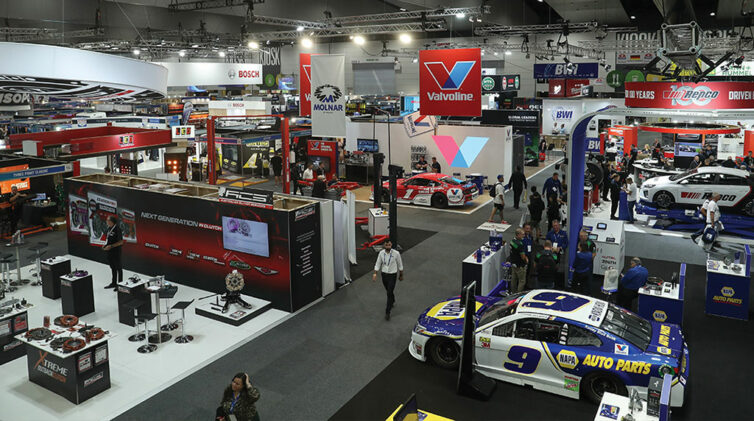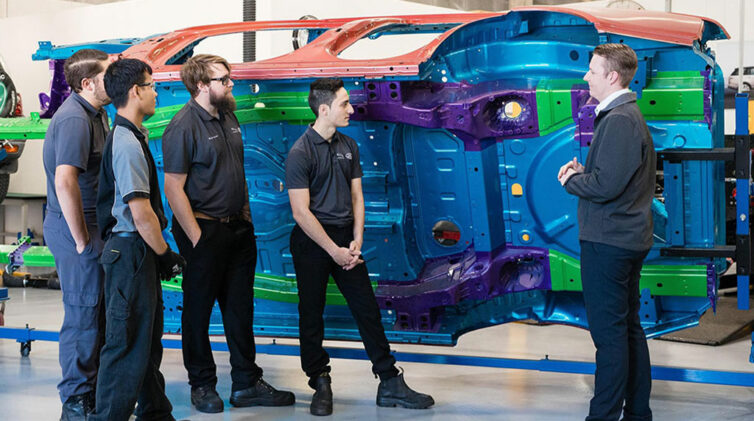In the latest example, we now have car companies urgently reviewing metal produced by Japan’s Kobe Steel company over the past 10 years which has been used to build cars, aircraft and nuclear power stations.
Recent revelations place serious doubt on the safety of the various products that were made from potentially dodgy metals.
Kobe Steel – which produces a range of raw metals including aluminium and copper – has admitted that it faked quality-specification reports which manufacturers counted on for the reliability and safety of their products including cars, aircraft and bullet trains.
The falsified data relating to metal strength and composition means companies including Boeing, Nissan, Mitsubishi, Ford and General Motors have installed components in cars, aircraft and trains not knowing if they met the specification standard or not.
Poor-grade metals could reduce the integrity of the product. They become a safety concern when used to make critical components, such as the crumple-rate section of a car’s passenger cell.
Car-makers buy millions of tonnes of steel and aluminum a year from a variety of producers which makes it difficult to trace specific components back to the metal manufacturer.
The century-old company has said that over the past 10 years, it had dealt with 500 customers.
Kobe employees have now admitted to faking reports so they showed the products met the specifications requested by customers.
The admissions started initially with revelations that copper and aluminum parts were signed off as meeting standards but have since included steel and other metals, including powdered steel used to make high-stress components such as gears.
Companies affected:
Boeing, Airbus and Mitsubishi used Kobe metals in their aircraft. Both companies stated that they don’t believe the parts represent a safety hazard. Airbus said it is checking its supply chains.
Toyota, Honda, Mazda and Nissan said they had used Kobe materials and were now assessing any potential danger. Mazda said it had not found any suspect parts but was still checking its supply chain.
Ford has said the Mondeo model built in China used aluminium parts in the bonnet. It is investigating if the metal was sourced during the affected period.
General Motors said it had checked and has not found any suspect parts so far.
Kobe Steel is now the subject of an investigation and has begun an internal probe. The public company saw its share price plunge by 40 per cent after the news broke last week.
It has said it will bear all costs incurred by its customers that are related to any recalls.
More porkies: Can you believe it?
Japan fourth in world liar rankings
JAPAN Today magazine in 2013 reported that a survey had found that Japan was ranked fourth in the world for telling lies.
The survey was tallied after asking people if they lied. Japanese who said ‘yes’ represented 31.8 per cent. It was behind Peru (39.1 per cent); Argentina (33.6); and Mexico (32.7).
It led to angry outbursts from Japanese, especially when it found that its disliked neighbour South Korea had a better 20 per cent rating.
One Japanese response claimed the results were fabricated. One Japanese response was that “20 per cent of the Koreans lied; the other 80 per cent are just liars”.
Here is the list of the doozies amongst Japanese corporate lies:
Takata: The airbag company has caused the world’s biggest recall program, affecting an estimated 100 million vehicles. It agreed to compensate car-makers and victims about $A1.2 billion but went bankrupt. The faulty airbags have killed 17 people, one in Australia.
Mitsubishi Motors: Recently admitted to lying about the fuel efficiency and emissions of some of its Japan-only small cars. The company’s stock price plunged and Nissan bought enough shares to gain control. Mitsubishi is now part of the Renault-Nissan Alliance.
In 2000, Mitsubishi Motors admitted that, for decades, employees secretly stashed tens of thousands of consumer complaints in boxes and changing rooms, behind lockers and even in the computer system using a special “H” code to signify that they should remain hidden. President Katsuhiko Kawasoe confessed to the scheme and admitted that it was a deliberate, systemic and widespread cover-up designed to avoid costly recalls. Nearly a million vehicles were involved in recalls at a cost of tens of millions of dollars. But the damage to its brand and reputation was far worse and it precipitated a long-term decline in Mitsubishi sales – especially in Japan and North America.
Mitsubishi Fuso Truck and Bus recalled 630,000 vehicles in 2010 after defects were found. It also admitted that, since 1992, 43 cases were identified where recalls were either not issued, were selectively issued or ignored.
Suzuki Motors: Overstated fuel economy figures. Same as Mitsubishi.
Toyota: Paid a fine of about $A2 billion after lying about a possible defect in the accelerator pedal found in some cars, including the Camry.
Toshiba: It overstated its profits by almost $A2 billion and understated its costs. Half the board, the president and two former CEOs all took the brunt of the deceit.
Tokyo Electric Power Company: Its ever-changing explanations of the nuclear incident at Fukushima Daiichi has damaged Japanese credibility around the world.
Oji Paper: Japan’s leading paper maker admitted it had lied for more than a decade about the amount of recycled paper it used. It claimed 50 per cent, in fact it was 5-10 per cent.
Nippon Paper Group: Japan’s second-biggest paper maker admitted the same thing.
By Neil Dowling
















 Read More: Related articles
Read More: Related articles

